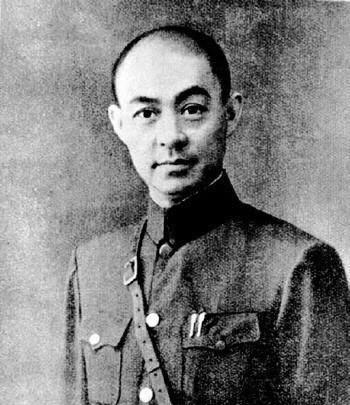
During the War of Resistance Against Japan, there were countless heroic soldiers who sacrificed heroically, and although one general was respected by the people after his sacrifice, he was controversial during his lifetime. This general was Zhang Zizhong, and when he died, the Japanese army, out of respect for him, ordered the aircraft to stop bombing for a day to protect his body. After the coffin was transported back to Nanjing, Chiang Kai-shek personally presided over the state funeral and the whole country mourned for it.
In 1937, the July 7 Lugou Bridge Incident broke out, before the fall of Peiping, how to deal with the people in the city and many wounded soldiers became a very difficult problem, and the situation at that time, it was necessary to leave a high-powered person to deal with the Japanese. Everyone understands that in this situation, if anyone sits at the negotiating table with the Japanese, the insults of the traitors will not be washed away. At the critical moment, Zhang Zizhong stepped forward and stayed behind to negotiate with the Japanese. After the Japanese army entered the city, it threatened Zhang Zizhong with the whole city's civilians and wounded soldiers, and Zhang Zizhong, in order to save Beiping City, could only bear the humiliation and bear the burden and agree to the conditions of the Japanese.
When the news came out, the whole country was indignant and accused the committee of adultery and traitor. As the presiding officer of this negotiation, Zhang Zizhong naturally became the main target of national condemnation.
In fact, as early as 1933, Zhang Zizhong had fought with the Japanese army. At that time, Zhang Zizhong led his army to fight the Japanese army to the death in the Great Wall Resistance War, and after tenacious combat, finally successfully blocked the Japanese army in the area of the Great Wall.
With the stabilization of the situation in Beiping, Zhang Zizhong was also able to escape and go south, but at this time, Zhang Zizhong had to endure the impact and pressure of external public opinion. Even when his special train arrived in Nanjing, this general who endured humiliation and burden was actually surrounded by patriotic students and reporters who had been waiting for a long time, and no one understood Zhang Zizhong's good intentions, and even Chiang Kai-shek secretly sent a telegram to Zhang Zizhong, it was best not to stay in Nanjing, and it was best not to appear in public.
Zhang Zizhong fell into great pain, the leader Mingzhe protected himself from washing away his grievances, and the people he wanted to defend wholeheartedly regarded themselves as traitors and insulted, and even some media even orchestrated their own names, using "self-righteousness" as a newspaper headline to angrily rebuke their traitorous behavior.
Although he has been misunderstood and blamed by the outside world for a long time, Zhang Zizhong has not given up on himself, and he has been looking for opportunities to justify his name. In May 1940, the Japanese army invested a large number of troops and advanced weapons to launch the Battle of Zaoyi, and Zhang Zizhong, commander-in-chief of the 33rd Group Army of the National Revolutionary Army, also personally led the army to meet the enemy.
In this battle, both sides were determined to win, so the battle was very fierce. Although Zhang Zizhong led his soldiers to stubbornly resist and fight back bravely. However, due to the large number of Japanese troops and the use of the most advanced weapons and equipment, more than 1,500 soldiers led by Zhang Zizhong were surrounded by more than 6,000 Japanese troops. In desperation, Zhang Zizhong had to retreat to the Ten Mile Changshan Mountain next to the pumpkin shop.
However, the Japanese army did not give up the pursuit of them, and after that, the Japanese army launched several charges against Zhang Zizhong's troops, but they were all repelled by Zhang Zizhong's generals one by one. Zhang Zizhong led his army and the Japanese army to fight until the afternoon of May 16, but unfortunately, the soldiers brought by Zhang Zizhong all died heroically, and Zhang Zizhong was also shot several times and died on the battlefield.
On the day zhang Zizhong was martyred, Huang Weigang, the commander of the Thirty-eighth Division, led the death squad members to desperately retrieve Zhang Zizhong's body from the Japanese position. And because he often dealt with Zhang Zizhong, the Japanese army also had some respect for the Chinese general who died for the country. Fearing that zhang Zizhong's body would be damaged, he ordered the planes to suspend the bombing for a day.
On May 28, 1940, Zhang Zizhong's coffin entered the Chongqing wharf along the waterway, and Chiang Kai-shek personally went to greet him. After Chiang Kai-shek saw Zhang Zizhong's coffin, he held the coffin in public and cried bitterly.
General Zhang Zizhong sacrificed his life for the country, history will not forget him, and people will always remember him. This general, who was mistaken by the people as a traitor, has always endured humiliation and burden, just like his vow in the telegram that "facts speak louder than words, and will die and then live", in the face of deep misunderstanding, he did not explain too many words, but used his life to explain his loyalty to the country and the nation!